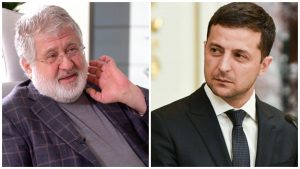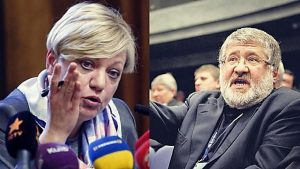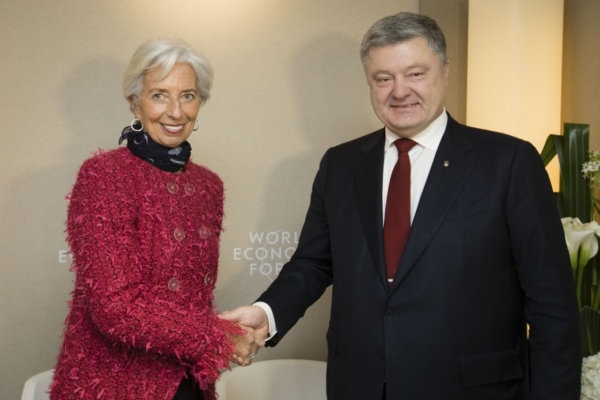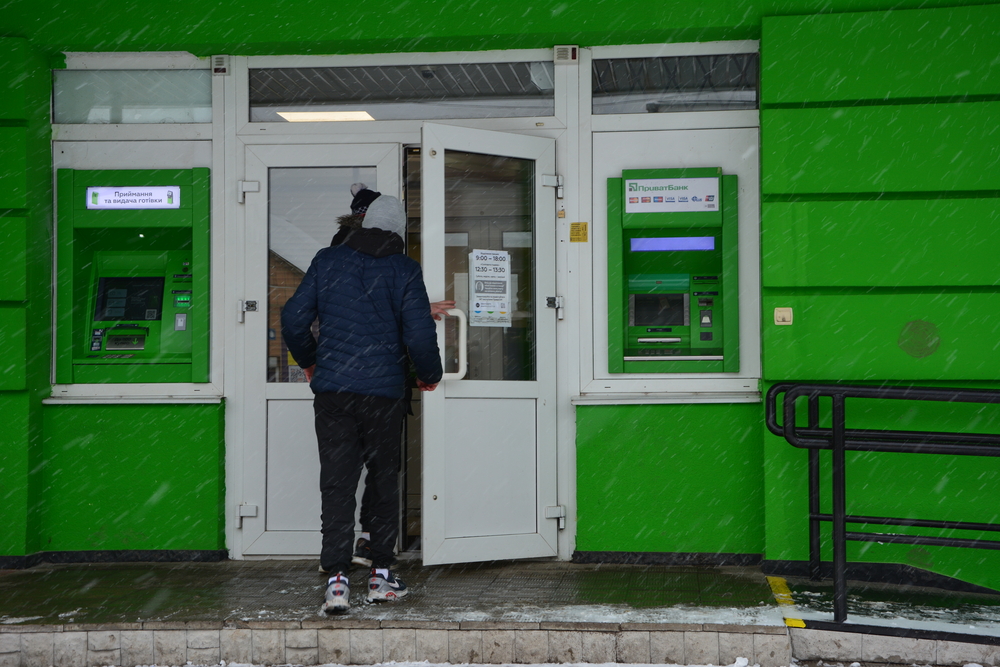The IMF has provided Ukraine with a $700 million tranche, but this should not be seen as a marker of the reforms implemented by Ukraine or the correctness of all of its decisions made. The country's banking sector keeps hanging over the abyss of scandals and occasionally they involve quite significant figures.
The most pressing issues that accompany each visit of the IMF mission to Ukraine are as follows: the adoption of a realistic and balanced state budget - the prerogative of the Ukrainian Ministry of Finance, continued banking reforms and counteracting attempts to roll back the said reforms within the National Bank of Ukraine (NBU).
This event constituted one of the important stages of Ukraine’s banking reform, when the NBU closed banks involved in illegal withdrawals of depositors’ funds and money laundering via fraud schemes. In the most high-profile case, oligarch Ihor Kolomoisky was stripped of his control of PrivatBank.
In fact, Kolomoisky withdrew US $5 billion of depositors’ funds and issued them as loans to fictitious legal entities.
The IMF directly supported the “bank failure” as it allowed honest banks to be filtered out, significantly improved the banking system, and changed the refinancing rules, which had previously been a major factor in the outflow of funds from the state budget to cover bank withdrawals.

Kolomoisky’s special relationship with newly elected President Zelenskyy and his team could have helped him return to PrivatBank after 2019. The Presidential Office’s loyalty to Ihor Kolomoisky was manifested in different ways: for example, the adoption of the so-called “anti-Kolomoisky bill” was accompanied by numerous spam amendments, primarily from pro-government MPs. However, due to pressure from Ukrainian society and Western partners, Ukraine managed to maintain at least the basic principles of banking reform.
In the future, the harassment of one of the authors of banking reforms, former governor of Ukraine’s National Bank Valeriya Hontareva, who has been severely criticized by Ihor Kolomoisky’s circles of influence, may become an important factor impacting the IMF decision.

In fact, the Security Service of Ukraine (SBU) accuses Valeriya Hontareva of treason and financing terrorism, pointing to her alleged involvement in supplying coal to Ukraine from the occupied territories of Donbas in 2014. As Ms. Hontareva did not make any enemies in Ukrainian politics during her tenure as NBU governor, it is quite plausible that the ex-owners of banks nationalized or closed for fraud have mounted a strong lobbying force against her.
A similar case was filed against Hontareva’s former employee Kateryna Rozhkova, who was also involved in banking reforms. She was formally charged with providing confidential information to foreign legal entities and audit companies during the audit of PrivatBank.
In addition, an important factor contributing to the IMF’s distrust of Ukraine is the dubious past of NBU governor Kyrylo Shevchenko. According to previous investigations, in 2011 he was directly involved in withdrawing depositors’ funds from TerraBank under a similarly fraudulent scheme. In their investigation, activists of the Democratic Axe, a Ukrainian political party and NGO founded in 2018, showed that in 2014 Kyrylo Shevchenko was directly involved in the withdrawal of more than UAH 200 million from Ukrgazbank, which he chaired at that time.

According to the activists, Ukrgazbank paid huge sums of money to outside intermediaries for allegedly bringing clients to Ukrgazbank in the form of large state-owned companies. However, there should have been no intermediaries in this chain between state-owned companies and Ukrgazbank, as they were directed to this bank by a resolution of the Cabinet of Ministers.
The intermediaries, who were “paid” several million hryvnias for their "services”, included several individual entrepreneurs, most of whom do not have any relation to the banking sector. Moreover, many are low-income individuals, pensioners, students, etc. Most were small private entrepreneurs, people who sold their data to fraudsters for a small fee. These fraudsters then used the companies of the private entrepreneurs to withdraw millions in cash and subsequently disappeared into thin air.
Among the persons who received money from Ukrgazbank for these fake services was the Herasymiuk couple (UAH 19 million for their “services”).
First, Mr. Herasymiuk worked with Kyrylo Shevchenko as head of Ukrgazbank’s legal department. Shortly thereafter, First Deputy Prosecutor General Mykola Herasymiuk presided over several departments of the Prosecutor’s Office that were involved in withdrawing funds from TerraBank, which was then chaired by the present governor of the NBU, Kyrylo Shevchenko. However, the investigation of the Prosecutor's Office in the case of withdrawal of funds came to a dead end.
Generally speaking, it is clear that bank management in Ukraine does not inspire much confidence on the part of the IMF. A certain video with Ihor Telbizov, head of Ukreximbank's banking security department, recently exploded on social media. Despite the fact that Telbizov was fired for attacking investigative journalists of the Skhema project, during an interview with the ex-director of Ukreximbank Yevhen Metzger, he was given a standing ovation when he again showed up at the bank.

The attack was strongly condemned by the public and journalists, but it was not the direct reason for Telbizov's dismissal. The situation looks even more suspicious when we examine the personal relationship between the bank’s ex-director Yevhen Metzger and President Volodymyr Zelenskyy, as well as the active role that Ukreximbank has played in the President’s much-touted "Big Construction" road reconstruction program.
In conclusion, in terms of cooperation with international creditors, there is an urgent need to clean up the banking environment in Ukraine. Persons whose reputation has been tarnished by participation in illegal schemes or by unethical behavior cannot hold high positions in the banking sector or in the national financial regulator (NBU).
Indeed, trust is built over time and can be destroyed in a few days. As long as Ukraine's relations with the IMF and the overall situation of Ukraine’s banking sector are constantly at the epicenter of scandals, this trust is regularly put to the test.





